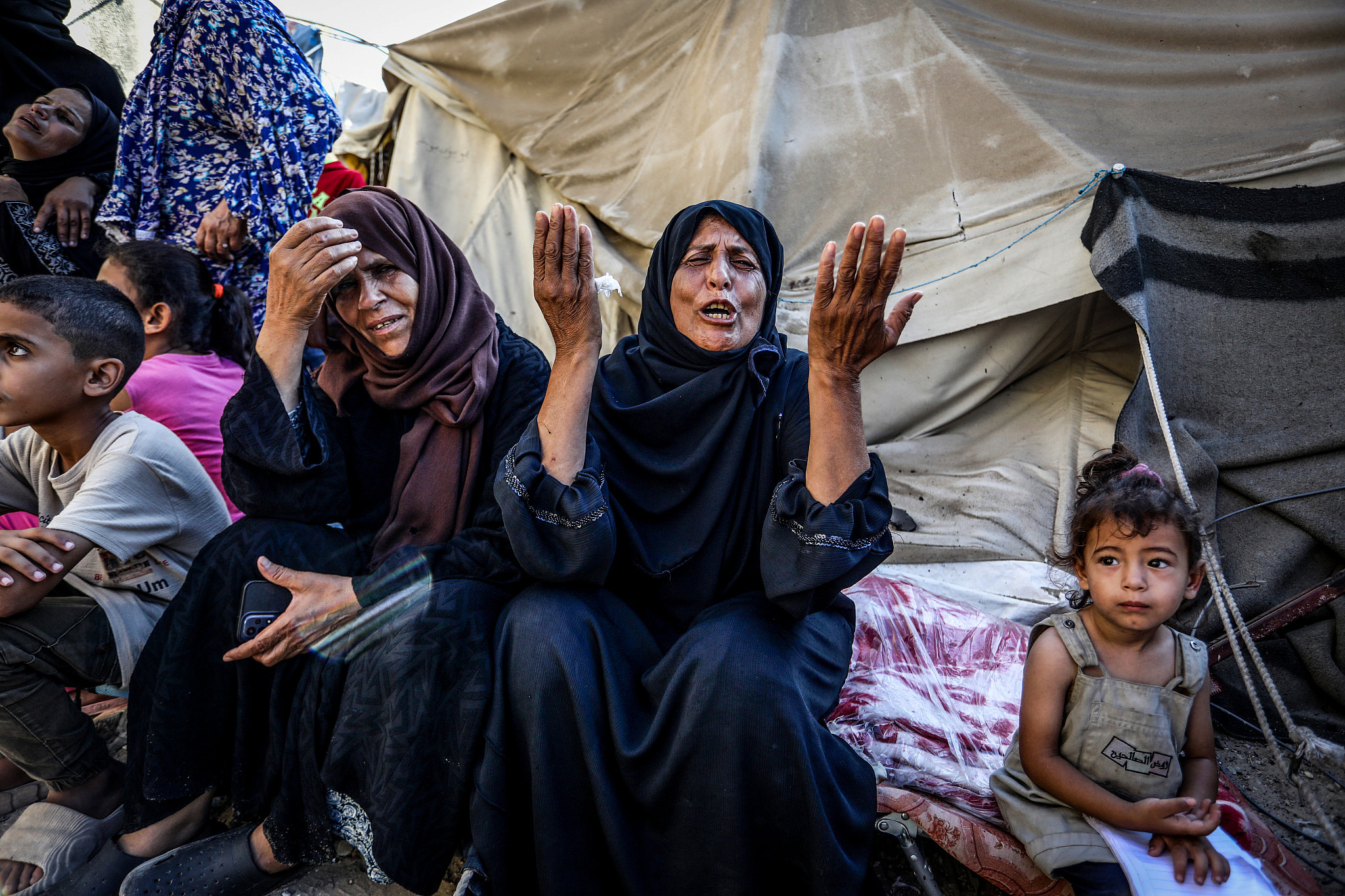At 5:40 a.m. on Aug. 10, the IDF Spokesperson sent a message to reporters informing them of an Israeli airstrike on a “military headquarters located in Al-Taba’een school compound near a mosque in the Daraj [and] Tuffah area, which serves as a shelter for residents of Gaza City.”
Shortly after this announcement, shocking images from Al-Taba’een school circulated around the world, showing piles of dismembered flesh and body parts being removed in plastic bags. The images were accompanied by reports that around 100 Palestinians had been killed in the Israeli attack, with many more hospitalized. Most of those killed were in the middle of fajr, or dawn prayers, at a designated space inside the school compound.
The IDF announcement explicitly stated that the school “serves as a shelter for residents of Gaza City,” meaning that the IDF knew refugees had fled there in fear of the army’s own bombings. The statement did not claim that there was any gunfire or rocket attacks from the school, but that “Hamas terrorists … planned and promoted … terrorist acts” from it. Nor did it claim that the civilians who took refuge in the school were given any warning, only that the army had used “precision weapons” and “intelligence.” In other words, the army bombed a populated shelter knowing full well the deadly repercussions its assault would inflict.
This dehumanization has reached new heights in recent weeks with the debate over the legitimacy of raping Palestinian prisoners. In a discussion on the mainstream TV network Channel 12, Yehuda Shlezinger, a “commentator” from the right-wing daily Israel Hayom, called for institutionalizing rape of prisoners as part of military practice. At least three Knesset members from the ruling Likud party also argued that Israeli soldiers should be allowed to do anything, including rape.
But the biggest trophy goes to Israel’s Finance Minister and Defense Ministry deputy, Bezalel Smotrich. The world “won’t let us cause 2 million civilians to die of hunger, even though it might be justified and moral until our hostages are returned,” he lamented at an Israel Hayom conference earlier this month.



The problem with Israel is that its leader was a bit too vile. About half of the elected knesset refused to form a coalition government with Netenyahu, resulting in years of failing to form a governing coalition.
Eventually, the path out of the stalemate ended up being forming a coalition with far right members of the knesset that had previously been political pariahs; including appointing a convicted terrorist to the role of minister of national security.
Prior to October 7, this was an extremely tenous political position. The coalition was hanging on by a thread. The attempted judicial
coupreform was stopped by massive public backlash. And the politian whose divisiveness was central to the political crises that enabled the far right to join the coalition was in the middle of defending himself in a criminal trial. However, when a crisis like October 7 happens, you are stuck with the leaders you have. And Israeli leadership at the time was possibly the worst in the history of the country for handling it (unless you agree with their manifest destiny version of Zionism, in which case I think they are doing quite well).The hamas attack was a godsend for the Israeli government. They couldn’t have done better themselves.